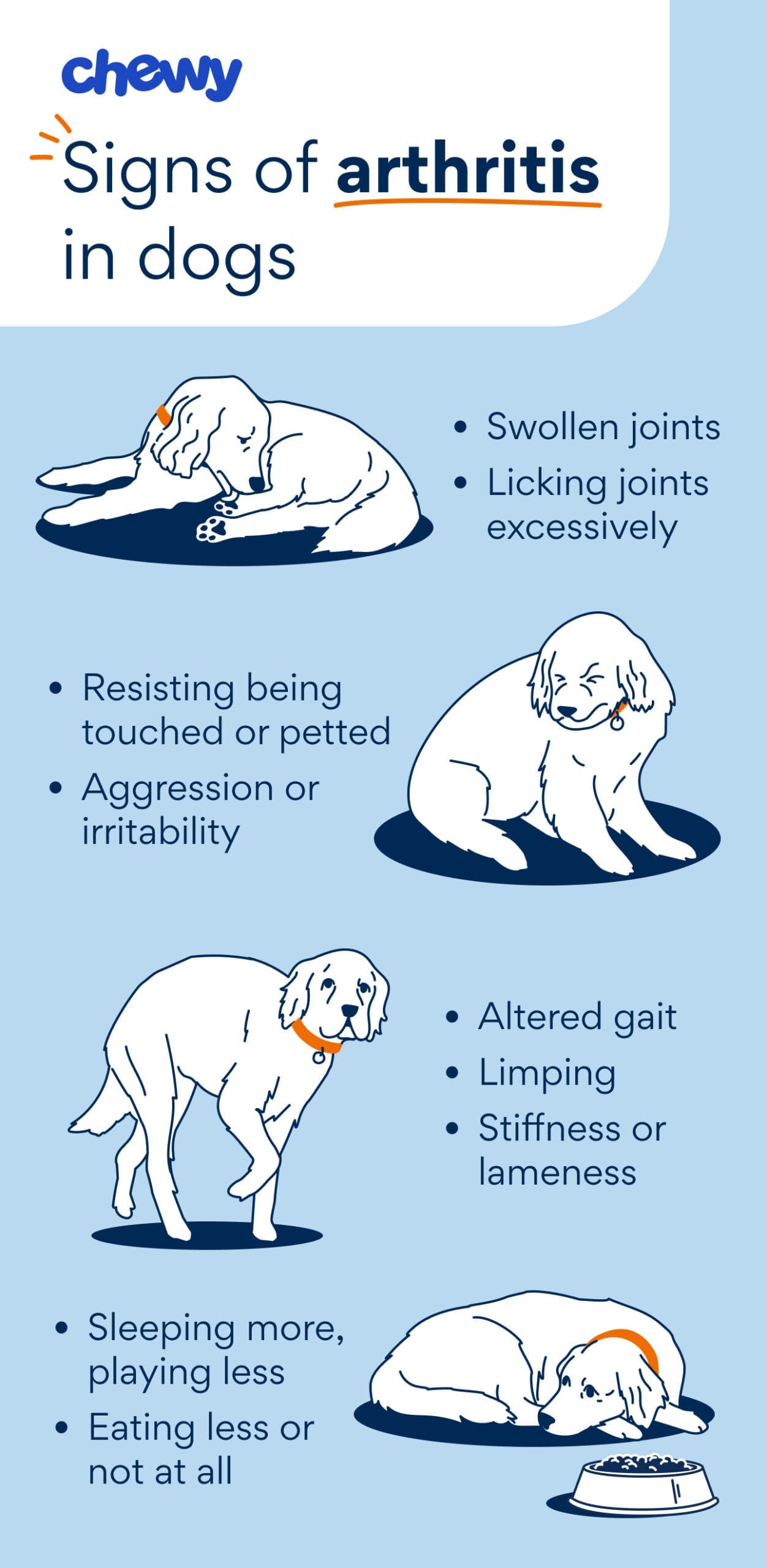Arthritis, particularly osteoarthritis, is a prevalent condition in dogs, stemming from various causes such as injury, developmental issues, or the natural wear and tear of aging. This painful joint ailment is characterized by chronic inflammation and can manifest as mild discomfort or severe pain, progressively worsening over time. Therefore, addressing arthritis promptly is crucial for pet parents aiming to ensure their dog’s well-being.
While veterinarians often prescribe pain relief medications and arthritis management drugs, sometimes with dietary adjustments, many owners seek alternative or complementary therapies. This article explores natural treatments that can help manage arthritis pain in dogs, focusing on holistic approaches and providing actionable advice.
Recognizing Arthritis in Your Canine Companion
The signs of arthritis can vary significantly among dogs, influenced by factors such as their size, age, the duration of the condition, their individual pain tolerance, immune system strength, and activity levels. Dr. Clay Bernard, TCVM, notes that owners might observe limping, slower rising after rest, and reduced endurance for long walks. Dogs with arthritis may also hesitate to jump on or off furniture, or be reluctant to use stairs or engage in vigorous play.
Dr. Jennifer Luna-Repose highlights that some indicators are more subtle, including increased sleeping, weight gain, muscle mass loss, depression, or a diminished appetite. Environmental factors like temperature changes can also affect a dog’s comfort. Pet parents might also notice shifts in their dog’s temperament, especially when sensitive areas are touched.
It is essential to consult a veterinarian if you suspect your dog has arthritis, as these symptoms can overlap with other medical conditions. A professional diagnosis is paramount.
Exploring Natural Treatments for Canine Arthritis
While veterinary guidance is crucial, prescription pain medications can sometimes lead to adverse effects on a dog’s internal organs, including the liver and kidneys. Steroids and NSAIDs may also cause gastrointestinal issues like stomach ulcers. This underscores the value of exploring natural treatment options.
Herbal and Supplemental Support
A variety of natural arthritis products and supplements are available for dogs, but it is advisable to consult a holistic veterinarian or one trained in Traditional Chinese Veterinary Herbal Medicine before administering any.
Traditional Chinese Veterinary Medicine (TCVM) utilizes formulas like Ligusticum for natural pain relief, Corydalis to alleviate discomfort, and specific blends to strengthen hindquarters. Ancient Indian herbs such as turmeric and boswellia are recognized for their potent anti-inflammatory properties. Omega-3 fatty acids, found in krill, sardine, or flaxseed oils, also offer anti-inflammatory benefits. Supplements containing glucosamine, chondroitin, and MSM can aid in preserving and nourishing damaged cartilage. For a natural preventative measure, bone broth is recommended for its cartilage-building and joint-protective qualities.
Acupuncture and Its Benefits
Veterinary acupuncture is another natural option for pain relief. It works by stimulating nerves, enhancing blood circulation, relaxing muscle spasms, and triggering the release of endorphins, the body’s natural pain relievers. Acupuncture is generally a painless procedure for dogs. Dr. Bernard suggests that consistent acupuncture treatments can lead to longer-lasting benefits and a return to balance.
Other Complementary Therapies
Beyond herbs and acupuncture, low-level laser therapy is recommended by some veterinarians to help manage arthritis pain. This therapy uses specific light wavelengths to improve wound healing, reduce pain, increase circulation, and decrease swelling. Devices like the FDA-cleared Assisi Loop utilize targeted Pulsed Electromagnetic Field Therapy (tPEMT) to boost nitric oxide production, aiding in the natural anti-inflammatory process and tissue healing. Other complementary treatments include TENS (transcutaneous electrical stimulation) and extracorporeal shock wave therapy.
Canine massage and aquatic therapy also offer significant benefits. Professional canine massage can improve circulation, reduce stress, and alleviate muscle tension. The buoyancy provided by water in aquatic therapy allows arthritic dogs to remain active and build muscle with reduced joint impact, whether swimming or using an underwater treadmill.
The Critical Role of Diet and Weight Management
A healthy, balanced diet is fundamental for managing chronic inflammatory conditions like arthritis, especially given the strong link between canine obesity and this ailment. Dr. Bernard often recommends fresh, species-specific diets, such as raw or home-cooked meals, emphasizing the importance of probiotics for gut health, which plays a role in inflammation. However, pet owners should consult their veterinarians regarding raw or home-cooked diets, as they can sometimes be nutritionally incomplete or contaminated.
Maintaining your dog’s activity level is vital for weight management, thereby reducing pressure on joints. Even for dogs with mobility challenges, short, frequent walks or indoor games like hide-and-seek can encourage movement.
It is essential for pet parents to consult with a trusted veterinarian before implementing any dietary or lifestyle changes related to natural arthritis treatments to ensure the most effective pain management and treatment plan for their dog.

